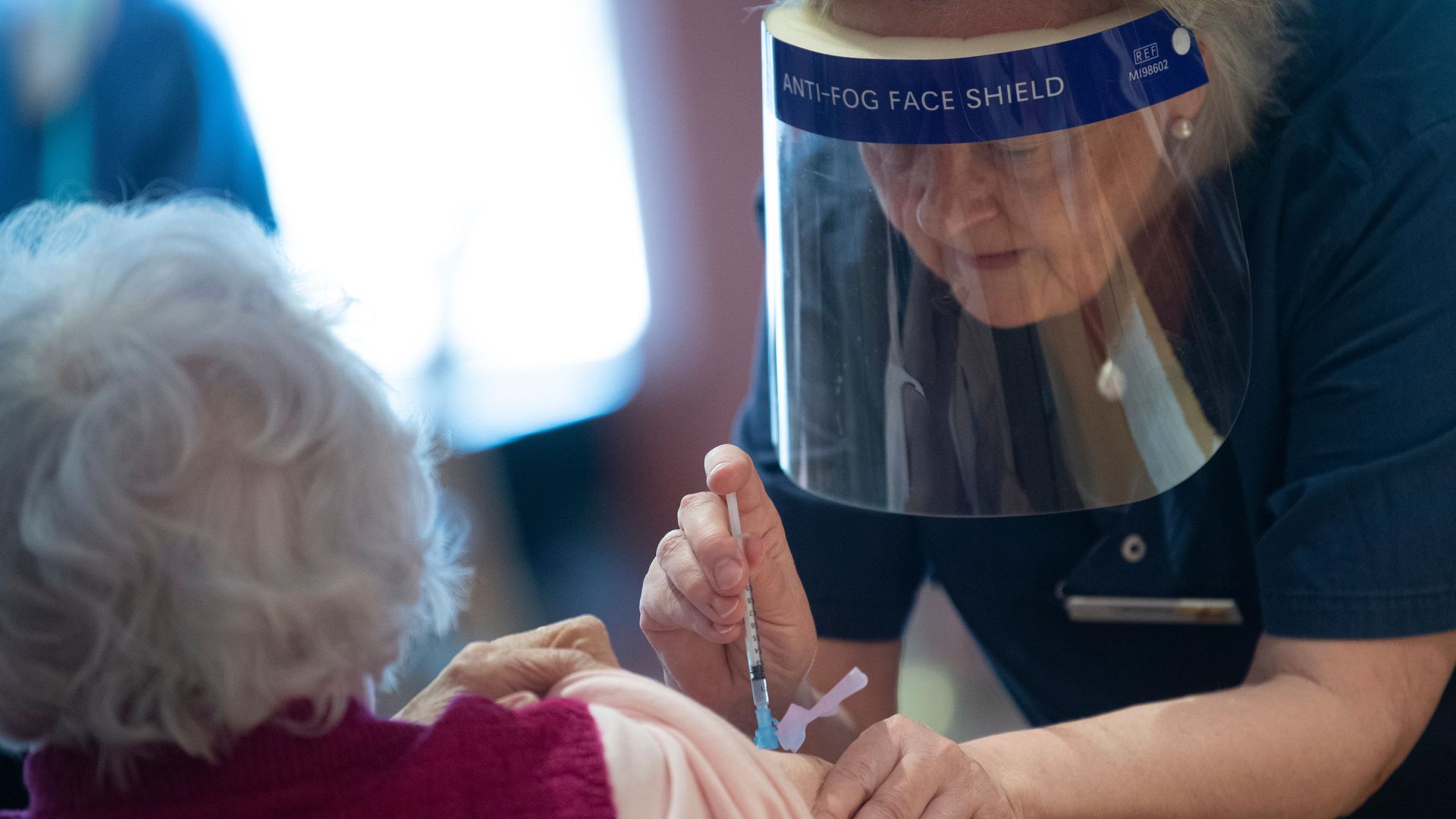Apr 20, 2021 - Health
Swedish health agency: Those under 65 should receive different vaccine than AstraZeneca's for second dose
Add Axios as your preferred source to
see more of our stories on Google.

A Swedish woman receiving the Pfizer-BioNTech vaccine. Photo: Fredrik Sandberg/TT News Agency/AFP via Getty Images
